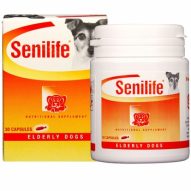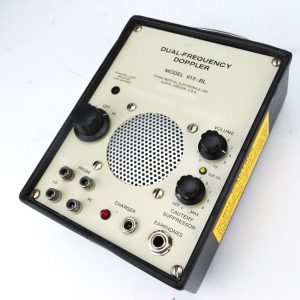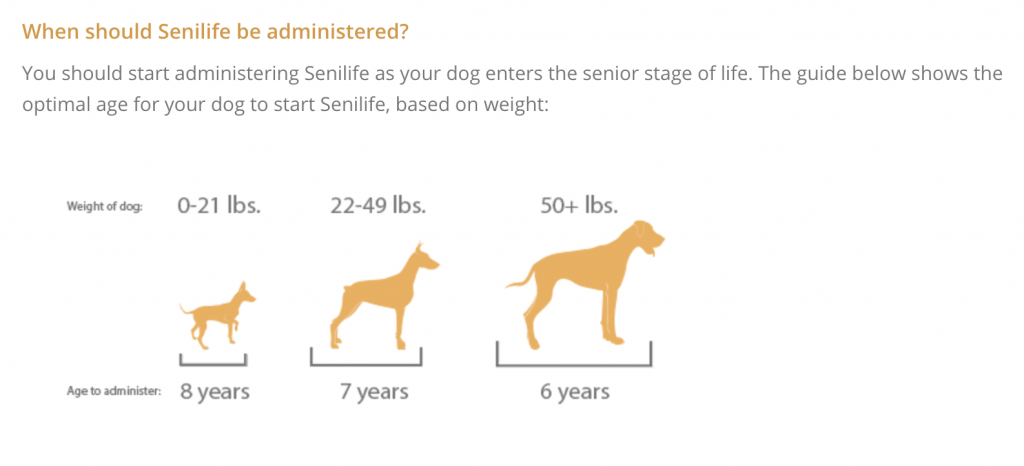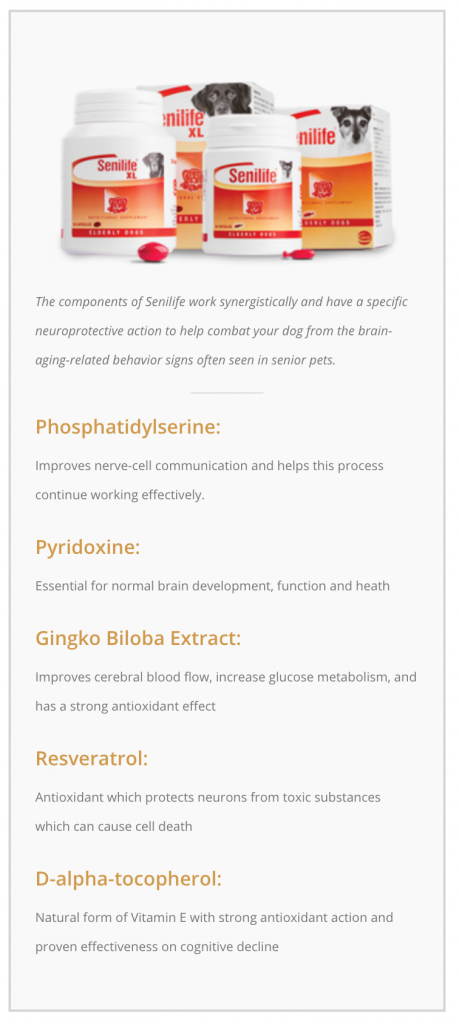Using Senilife, a holistic supplement, for my senile old cat | Dr. Justine Lee
As a veterinarian, I was concerned when my 18-year-old, domestic shorthaired cat started acting senile. He was showing the following signs at home:
- Howling randomly at night
- Walking around randomly screaming at doors
- Seeming slower
- Acting deaf or non-responsive when I called to him
Sometimes we can see this from underlying medication conditions that are seen more frequently in geriatric cats such as:
- Hyperthyroidism (an overactive thyroid)
- Hypertension
- Chronic kidney failure (an overactive thyroid)
- Cancer
- Osteoarthritis
- Deadfness (an overactive thyroid)
- Blindness (secondary to hypertension, etc.)
When in doubt, get to your veterinarian for a thorough examination and blood pressure check (My general advice is call first to see if your veterinary clinic can check a blood pressure with a Doppler machine like this one below; if they can’t and don’t have a blood pressure monitor in their clinic, find a new veterinarian!).
Your veterinarian will also recommend doing the following blood work to make sure your senile cat doesn’t have any other medical conditions. Tests will include:
- Complete blood count
- Biochemistry panel
- Urinalysis
- T4 (thyroid test)
- X-rays
Once your cat checks out ok, and it turns out to be cognitive dysfunction (or senility), I’d recommend a holistic supplement that you can safely purchase online or from your veterinarian. When in doubt, you can also consult with a board-certified veterinary behaviorist; find one in your area here!


I just started using Senilife in my own cat after recommendation from a veterinary behaviorist. Honestly, I love this product (and I have nothing to disclose – I have no association with this product at all). I’ve only used it for 4 days in a row so far, and it’s worked really well. My cat, who howls and screams every single night, hasn’t screamed at all except for the one night that I also forgot to give him his nightly pain medication, gabapentin. Couldn’t be happier – I simply cut the end of the red capsule off, squeeze the brown liquid thick contents into a cat bowl, add 1 tsp of a prescription cat food that is really palatable (You can get this from your veterinarian – I use Purina Critical Nutrition diet).


If you have a small dog (< 50 pounds), you can use Senilife for dogs up to 50 pounds.


This is the one I use in my cat at 1 capsule per day:


For larger dogs, you likely need the “XL” size here:

The recommended dosing for dogs is here:
So, what’s in this behavioral supplement and how does it work? First, it seems really benign as it contains the following natural ingredients:
- Phosphatidylserine, which improves nerve-cell communication and helps this process continue working effectively.
- Pyridoxine (vitamin B), which is essential for normal brain development, function and heath
- Gingko Biloba Extract, an herbal plant that improves cerebral blood flow, increase glucose metabolism, and has a strong antioxidant effect
- Resveratrol (a stilbenoid found in plants), an antioxidant which protects neurons from toxic substances which can cause cell death
- D-alpha-tocopherol (vitamin E), which is a strong antioxidant action and proven effectiveness on cognitive decline
Again, I just started using this in my own cat, so I’ll keep you posted in a few months if it’s helping or not! Hope it helps and please share below if you’ve had positive or negative responses in your dog or cat!








My 19 year old Siamese does all the things your cat does and she was just put on hyperthyroid medication but she’s still noisy. My vet recommended the Senilife but it says it’s for dogs so I haven’t bought it yet. Also she weighs less than 5 lbs so I wouldn’t know how to figure out how much. Since you say you give it to your cat I figure it’s ok for cats even though it only says it’s for dogs. Would you have a suggestion for dosage for a 4.2 lb cat, hopefully she’s gained a little back but I’ don’t think much yet. I would ask my vet but when she suggested it she said follow the directions on the label, which won’t help when they are giving you dosages for dogs who weigh a whole lot more than my cat.
Hi Diane,
Congrats on having a 19 year old cat! 🙂 You can use the SMALL DOG dose of Senelife for your cat – it’s very safe and benign. If you’re worrie,d you can give HALF of the capsule on food (if she’ll eat it that way) and see if that dose helps once a day. Again, use the small dog capsules!
Thanks, I appreciate your help, I couldn’t find anyone to help not even the company! I hope it works as well for my cat as yours and I hope both our cats make it into their 20’s!
Sorry I forgot to ask, is the small dog product the one that says for elderly dogs like you show in the picture? Thought I should be sure since it doesn’t say for small dogs like the other version that say for large dogs over 50 lbs.
Yes, like the one in the picture. I’ve added a link to the blog above!
I’m wondering about the update. Are you still using it? If so, what is your feedback from several months’ use? (Also, what do you mean by “an overactive thyroid” next to CKD and deafness above?)
Sadly, my cat that I was using this on died of squamous cell carcinoma (oral mouth cancer). It did work well in conjection (with gabapentin for osteoarthritis).
Are there any known side effects? My 13 year old lab mix is having cognitive issues, so I put her on this about 2 weeks ago. Last night she started walking like a drunken sailor and shaking her head. I’m very concerned and can’t find anything online about side effects. This is really the only new thing we’ve done with her recently. Thanks.
No, it’s super benign. If that’s happening, I’d get to a veterinarian ASAP as I’d be worried it could be an underlying brain tumor or vestibular nerve problem. 🙁
Can I increase the dosage of Senelife safely for my 14 year old Beagle? She’s done well on it once a day, up until about 10 days ago. She’s recently started showing some further cognitive deterioration. Want to give her a second dose of the Senelife in the evening, to see if I can see any improvement again.
So sad. She’s eating, walking and mostly sleeping ok (a bit restless). She’s just not really “here” anymore. She does still like other dogs and will get sorta playful with them but at home…she just stopped running around the house with her toy after dinner, like a maniac….
Sorry to hear that – I would consult with your veterinarian in case something else is going on! While Senelife is safe, we want to make sure it’s not something medical going on.
Ok! Thanks for replying
If I am reading the dosing directions right, my dog can digest the entire capsule, correct?
Depending on the size of your dogs, yes. But when in doubt check with your vet.
I have a senior yorkie who is just under 8 lbs. I’m wondering if this is a pill that can be cut, or if there is a smaller dose?
The smallest dog size is a capsule and can’t be easily cut or split. But I have had good experience using the whole capsule for my cat.
I’ve been giving Senelife (small dog size) to my 19 1/2 year old cat for the past year and all of his Dementia symptoms are gone! He still weighs 14 pounds and runs around like a kitten dispose having Kidney Disease, High blood pressure and Some Arthritis (all of which I treat with Meds, supplements and fluids) my vet is now recommending for some of her dog and cat patients with Dementia symptoms.
I do poke a tiny hole in the red capsule and put it in a size 1 gel capsule (kosher/vegan) and use a pill gu. To administer to my cat. It’s super easy to do it this way because he hates the taste it I put it on his food and too big in its original capsule to pop down his throat. I highly recommend Senelife. It’s saved my cats life! And hopefully he has another year or two!
I’m so glad to hear that! 🙂 You can cut the tip of the red capsule to squeeze it into a size 1 gel capsule so it flows out better. 🙂 Thank you for sharing and hope you get another year or two! 🙂
I just started using this for my 7 pound elderly dog. Within an hour he was much more active and I thought perhaps the one-capsule dose was too much for him. During the day he seemed more “connected” and more like his former, younger self. But
Because he was SO active after a full dose (walking all over the house constantly for hours) I was afraid to give him a full dose this morning. But if it is OK for a small cat, then perhaps it is OK for my dog. Not sure what I will do, but gave a half dose today and he is sleeping alot. Maybe the full dose yesterday and all that exercise wore him out.
I have some confusion about this pill .is it still good one for under 9 Ib puppy?
Is this product safe for daily dosing? I have a 15 yr old Yorkie that has responded very well on Senilife and has been on it for 3 months. I’ve not been able to find an answer to my question, however. The Vet that recommended this product had just heard about it and does not offer it through his practice, so I purchase online.
Great question – we don’t know as there are no studies as it’s a supplement. I would recommend doing blood work every 6 months to monitor kidney and liver function, white and red blood cells to be safe! 🙂 For any dog or cat over 10, I always recommend twice a year blood work to screen for any problem! Hope that helps and so glad your Yorkie is responding well to it!
Best,
Dr. Justine Lee
My 12 year old dog has been having difficulty going to sleep at night. My vet thinks he has some dementia, sundowners and failing eye sight. I have been giving him phenobarbital along with melantonin each night, but he is still waking repeatedly through the night. I’d like to try Senilife. Is I’m ok to take in addition to the melantonin or CBD oil?
Yes, in my opinion, it’s very safe, but I would check with your vet.
Can Senilife and CBD oil be taken together?
I’m not sure as they haven’t been used together in studies that I know of. I would do blood work before starting both and then repeat it in 2-4 weeks to see if the liver values are ok – if they are, it’s likely safe, but needs liver enzymes monitored 1-2X/year, sooner if not doing well.
I have an 18+ female Siamese that I believe is showing signs of dementia. Stares quite a bit, not as active but does walk around and snoop. Eating, drinking, using the litter box. Stays in her bed more than she used to. No yowling or other issues.
Can I give her the Senilife? What dosage? Dude effects? She will not take pills or capsules. Can I put this with some water in a syringe? She presently is on Cisapride for constipation and transdermal thyroid medication
Please respond I have to help my girl out thank you
I bought the Senelife XL as the regular Senelife was unavailable. I realise this is for larger dogs and as my girl only weighs around 5.5kg I’m wondering if someone can advise me a modified dose. TIA
Likely just 1/4 of the capsule to be safe.
My cat’s 18, and although super skinny (kidney disease and hyperthyroid), he’s a big boy. He’s probably about 14 pounds though I’d like him at 16.
He’d been yelling at his water dish at night and pulling out his fur for years. He’s been increasingly confused and started soiling the house about 2 years ago. I have 6 litter boxes and 4 pee pads (down from 7 until a few months ago) that saved my carpet whichhad been working and getting regular use.
I just started him on senilife about 2 weeks ago, and the change is remarkable. No more howling, and I just realized that he hasn’t used a potty pad in a week. My hope to stop potty pads and get rid of a couple of litter boxes. He seems less confused too. I’m excited to see how much better he feels after 2 more weeks.
I give my boy one capsule per day. Because he’s so big and used to taking pills, the huge capsule hasn’t been a big deal. I just use my pill popper and he swallows it like a champ.
Glad I found this a few weeks ago. Thank you
Comment *I have a 18 year old cat, weight is 5.9 lbs, currently taking methimezole 5 mg, 1/4 tablet twice a day. Her thyroid level is good. She eats, drinks and uses litter box normally, but she has become very vocal, and lets out these distressing meows a lot. What dosage would I use for her? Some sites say not to use on cars so I’m a bit confused.
The dose I use is listed in the blog. One small dog capsule once a day.